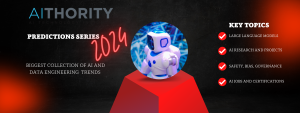AI and Big Data Revolutionize Allergen Management in the HORECA Sector
-
According to the Spanish Agency for Food Safety and Nutrition (AESAN), food allergies affect 3% of adults and 6% of children in Spain, while food intolerances can affect up to 20% of the population.
-
In this context, Artificial Intelligence (AI) and Big Data become indispensable. For Enric Quintero, CEO of Datarmony , a pioneering company in technological solutions, “these tools are transforming the way restaurants address the concerns of their diners.”
The management of allergens and food intolerances is an important challenge for the horeca sector, which must guarantee the safety and quality of the food it offers to its customers, as well as adequately inform about the ingredients and substances that can cause adverse reactions. In this context, Enric Quintero, CEO of Datarmony, a pioneering company in technological solutions, explains that “AI and Big Data are transforming the way restaurants address the concerns of their diners.”
 AIThority News:Core BTS Announces New AI Consulting Services to Help Clients Accelerate use of GenAI Technologies
AIThority News:Core BTS Announces New AI Consulting Services to Help Clients Accelerate use of GenAI Technologies
According to the Spanish Agency for Food Safety and Nutrition (AESAN), food allergies affect 3% of adults and 6% of children in Spain , while food intolerances can affect up to 20% of the population.
“Artificial intelligence and Big Data are technologies that can provide great value to the hospitality sector, especially in a context of growing demand for personalization and transparency by consumers. Data management helps hospitality establishments to improve their management of allergens and food intolerances, to comply with regulations and to build customer loyalty, offering them a safe and satisfactory gastronomic experience,” adds Quintero .
Thanks to advanced algorithms, data management platforms can analyze vast amounts of information about allergens and preferences, allowing restaurants to precisely tailor their menus and offer safe and delicious options for everyone.
Knowing the data not only helps you comply with regulations, but also drives customer loyalty by demonstrating a genuine commitment to their well-being ,” says Quintero. “In this way, restaurants can now proactively anticipate and address the dietary needs of their customers,” he concludes.
Top Generative AI News:Core BTS Announces New AI Consulting Services to Help Clients Accelerate use of GenAI Technologies
The intelligent revolution: how to analyze consumption patterns
The implementation of Artificial Intelligence (AI) is revolutionizing operational efficiency: from optimizing internal processes to personalizing the customer experience, AI algorithms are being used to predict demand, manage inventories and streamline operations.
AI systems can analyze consumption patterns, anticipate trends and optimize menu offerings in restaurants , cafes and hotels, dynamically adapting to changing customer preferences,” says Enric Quintero, CEO of Datarmony.
Personalized recommendation systems are powered by AI and analyze customer order history, preferences, and reviews to provide more accurate and personalized recommendations. “From suggesting dishes based on individual tastes to adjusting service hours based on consumption patterns, AI is redefining the interaction between establishments and their customers ,” reports the expert in technological solutions.
The automation of repetitive tasks is another key aspect in the implementation of AI in the Horeca sector. Using predictive analytics, you can forecast inventory needs, reduce food waste, and optimize costs.
“The limits does not exist. It can be done from order processing to reservation management. Thus, AI allows us to streamline operations, reduce errors and free up time for staff to focus on more strategic and customer service tasks. In addition, chatbots and AI-based customer service systems offer quick and accurate responses to common queries, improving the user experience at all times,” concludes Quintero.
Recommended AI News: New Slack Innovations and Salesforce Customer 360 Integrations Unlock Team Productivity, Adding Value to the Digital HQ
[To share your insights with us, please write to sghosh@martechseries.com]

Comments are closed.